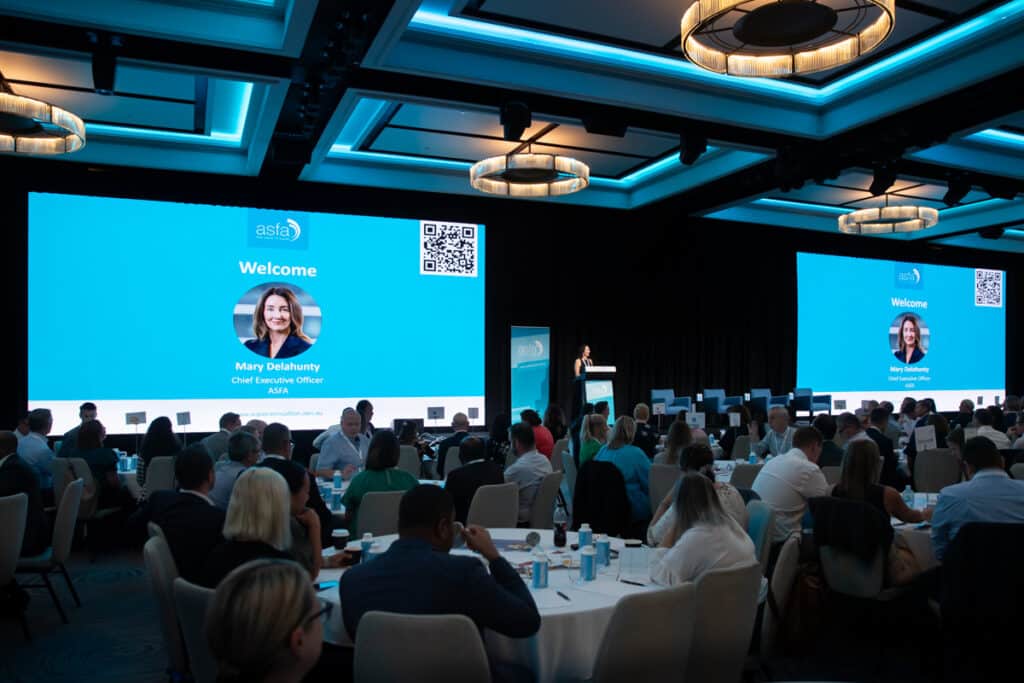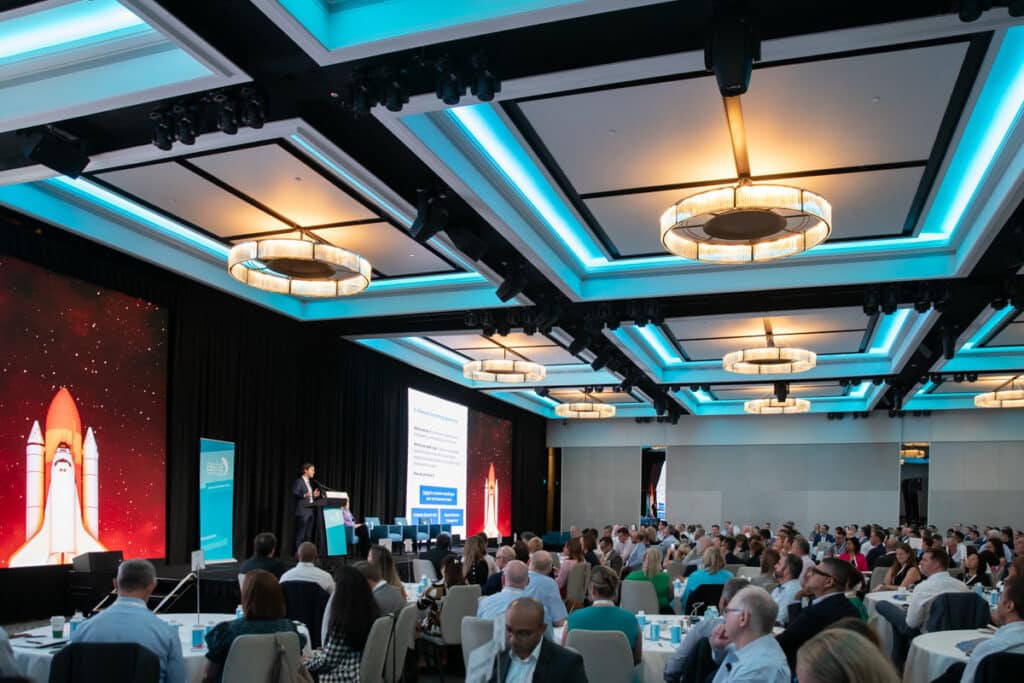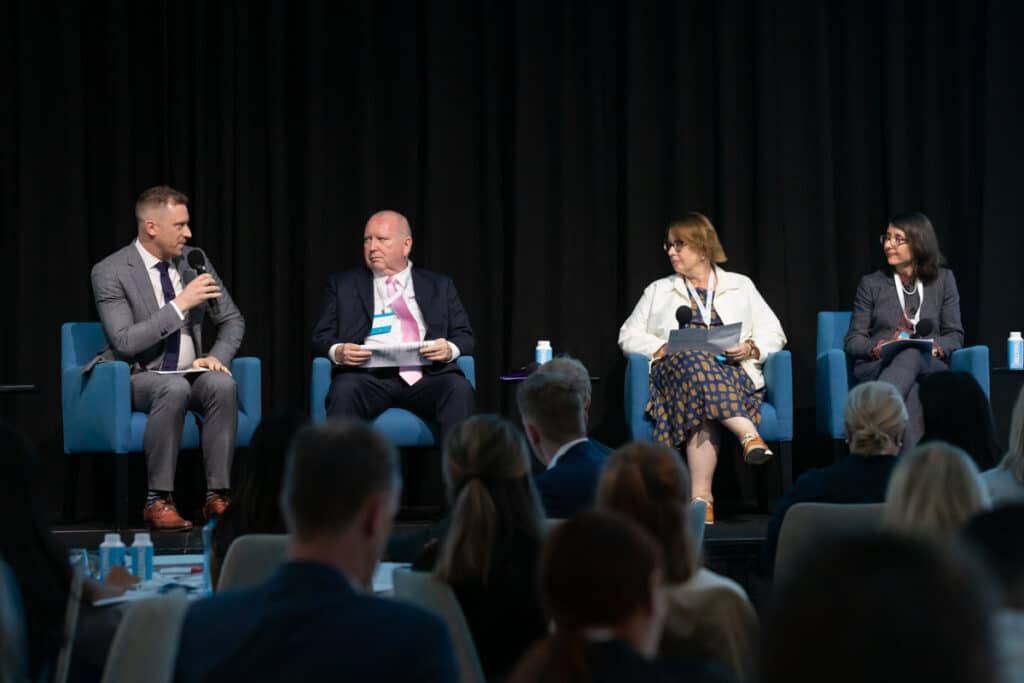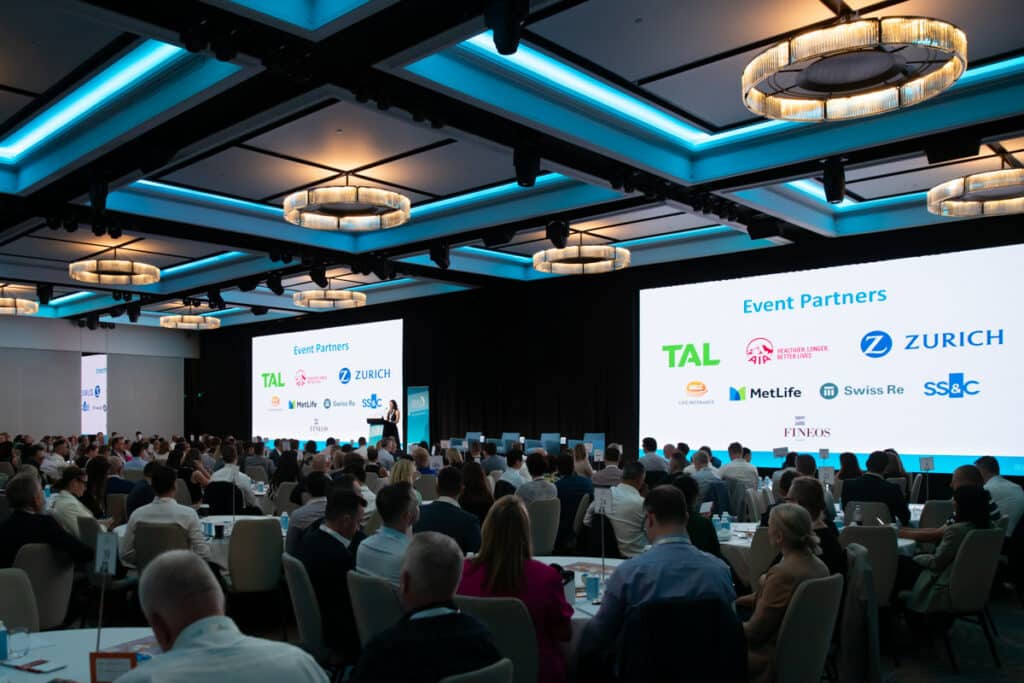Spotlight on Insurance in Super continues to be one of the premier ASFA events on the calendar evident by the packed room at the Sydney Four Seasons Hotel, the energetic chatter during breaks and high level of audience engagement in each session.
ASFA CEO Mary Delahunty began the day emphasising the important purpose of insurance and announcing ASFA’s research report that found a sharp decline in the number of Australians covered by group insurance through superannuation.

Talking TPD, products and member engagement
There seemed to be general agreement that current TPD definitions and products are not necessarily a good fit for the needs of members, particularly those experiencing mental health issues.
Assisting members to get well and return to work early is a better outcome for all than a declaration years after the event that a person is TPD and for them to receive what, in many cases, is only a very modest lump sum.
Making benefits more relatable to members will be key to improving engagement and delivery of appropriate insurance arrangements.
Swiss Re’s Mark McClenahan began the first session using the analogy of building a rocket to get to the moon. This is not an easy task, but it can be done. And with insurance, there is a strong launch platform, but also some challenges. Mark and several other speakers articulated that there are low levels of member engagement.
When the discussion turned to products, there was general agreement that legislative constraints impacted product development and if given a blank sheet of paper, they would design more flexible and customised insurance products.
UniSuper’s Ian Lorimer put forward a bold aspiration for his fund to become the Netflix of insurance provision. While it is unlikely that any fund will get the number of downloads on insurance that Bridgerton or the Kardashians have achieved, it is a very valid analogy. Netflix drives their customer interactions through the data they collect, nudging customers towards content that best meets their needs. However, how this can be done with superannuation members is more challenging.

Surveys of members will play a role but making use of Consumer Data Right could also be used. Data scraping from Single Touch Payroll and payday super arrangements also has potential. For insurers, greater access to information about fund members and their needs would help the industry better design and price insurance products.
Kate Leplaw from AustralianSuper reminded us that too often we are preoccupied with legal and regulatory constraints rather than product innovation. But as GROW’s Adam Gee stated, we should never waste a crisis to find opportunities for change. While greater digitisation has many benefits, it may not provide the answer to all complex issues, particularly for members who do not have a computer. TAL’s Jenny Nguyen reinforced the importance of clear communication for members, and also the member benefits of bringing together the superannuation and insurance ‘ecosystems’.
Challenges and changes, and highlighting care and support
Zurich’s Darren Wickham shared his impressive knowledge of matters Taylor Swift. And just like a Taylor Swift lyric, we can talk about the shortcomings of an ex or other people who have wronged us, but as with Taylor, self-knowledge is just as important. Some problems with dealing with claims and complaints are due to external factors, however SS&C’s Melissa Davies and Insignia’s Kerry Vogel shared how making processes simpler, using clearer terminology and having effective communication with claimants have important roles to play.
MLC Life’s Alison Bodinnar shared the survey and focus group results that MLC collected about evolving member needs and expectations of disability cover in super. This was very powerful, but even more so was the personal experiences of those who’d experienced life changing events. Sam and Cam Bloom’s video presentation showed how crucial medical and rehabilitation care is, and also financial support through insurance.
A later panel discussion spoke more about that pesky P in TPD. A poll of the room showed that a large majority of attendees consider that TPD is not fit for purpose – and has not been for a long time.
We heard about the need for change to happen, rather than just more talk on the subject.
In a session chaired by AIA’s Damien Mu, delegates heard how, in this time of increasing disability claims, early intervention with an online mental health program has had positive impacts.

Heather Gray from AFCA spoke about the surge in complaints concerning insurance through superannuation, with delay in claims handling responsible for many complaints. ASIC’s Jane Eccleston focused on service standards and made a number of suggestions on how claims could be better handled and how complaints can be quickly resolved. Adrian Rees said that APRA had seen progress in regard to sustainability in premiums, provision of suitable productions, and production of suitable data but some concerns still remain. More work also needs to be done on making sure that TPD is both affordable and of value to members.
Genetic testing and the implications for super and group insurance was the final topic under the spotlight with the panel considering the ethics and how it may impact funds and group insurance offerings.
Before the day drew to a close, Mary Delahunty announced that ASFA will be convening a Working Group to look at ways of getting change to happen and invited interested participants to contact ASFA. Please email Ross Clare, ASFA Research Director and author of ASFA research paper Developments in insurance provided through superannuation.
A big thank you to all the Spotlight on Insurance partners – TAL, AIA Australia, Zurich, MLC Life Insurance, MetLife, Swiss Re, SS&C and Fineos.
To view more photos from the day visit the gallery.







